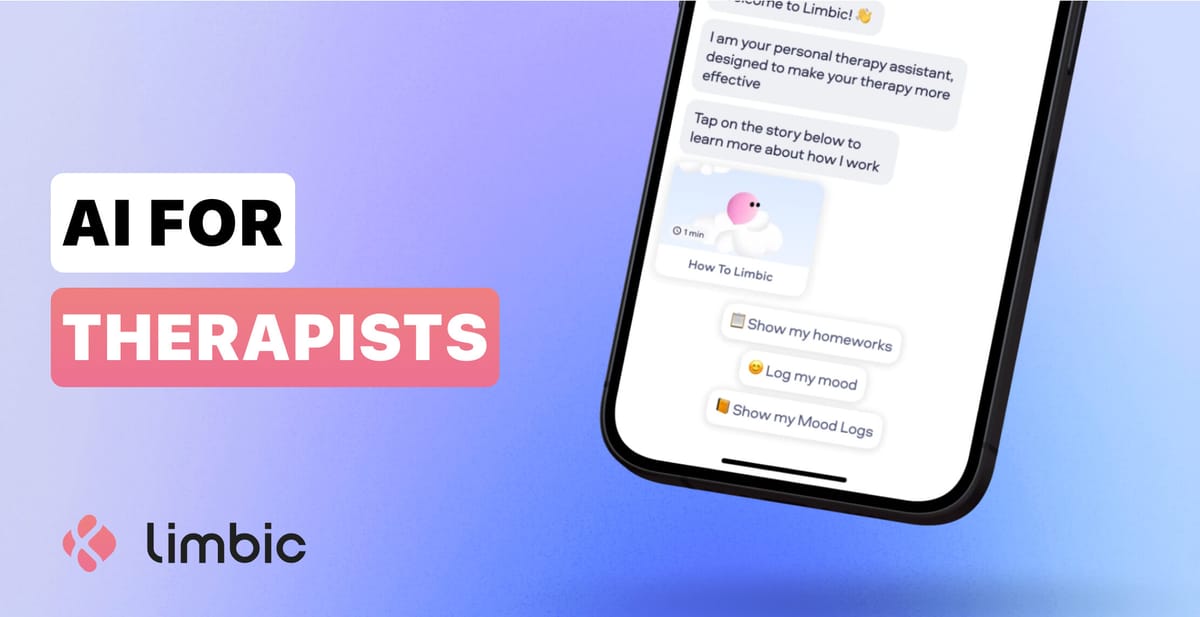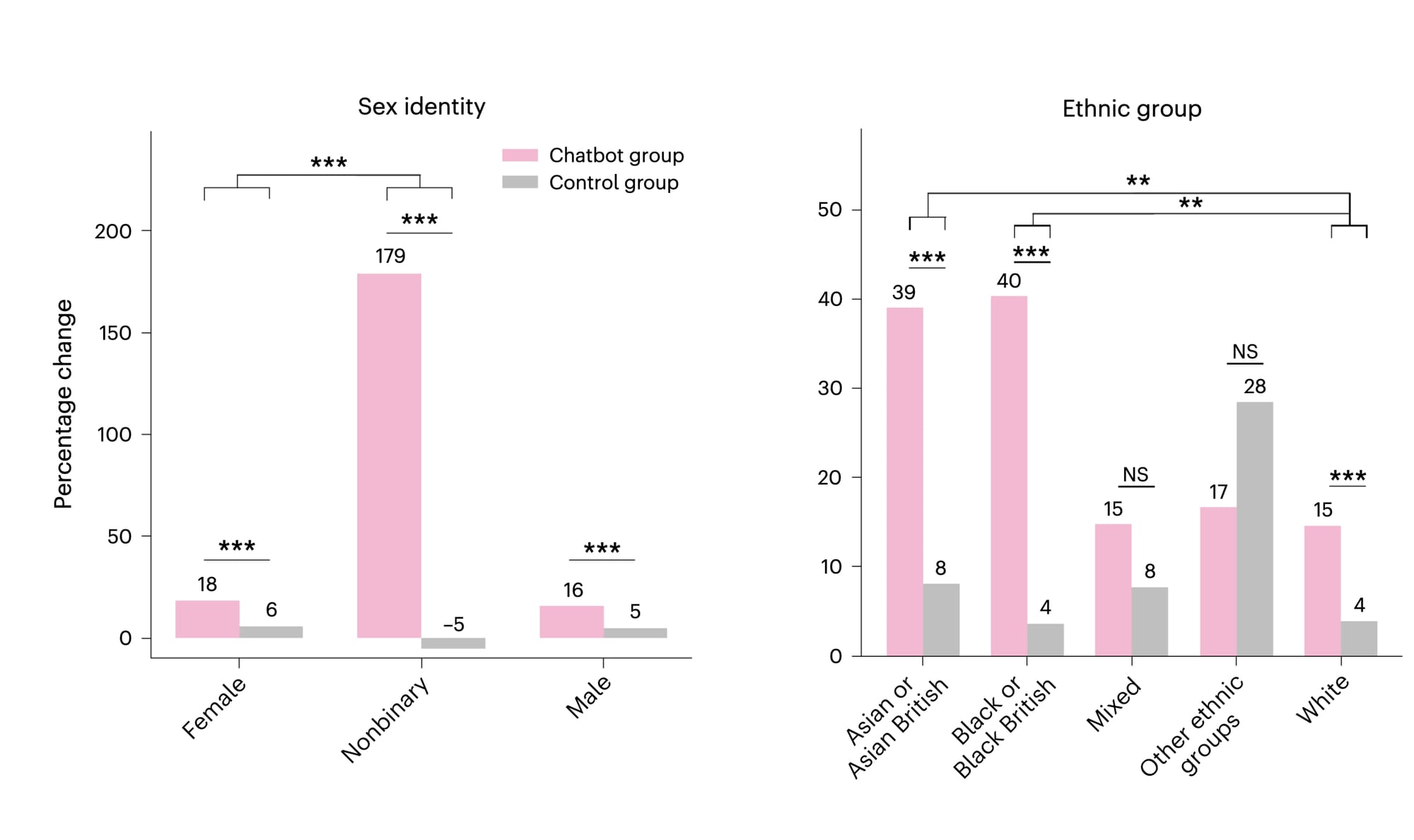
A new study published in Nature Medicine details how chatbot that helps screen patients for mental health services has led to increased referrals, especially among minority groups in England's National Health Service (NHS).
The chatbot, Limbic Access, interacts with visitors to NHS websites, gathering information to refer them to appropriate mental health services. Over a 3-month trial across 28 NHS Talking Therapies locations, referrals increased 15% overall wherever the chatbot was implemented.
But the biggest rise came among minority groups – 40% for Black patients, 39% for Asian patients, and 179% for nonbinary patients compared to locations without the chatbot. The ease-of-use and non-judgmental nature of the AI appear to make mental health services more approachable for underserved groups.

Crucially, the increased referrals did not overburden clinicians. In fact, the detailed patient information gathered by Limbic Access reduced assessment times while improving quality, freeing up clinical resources.
Building on this success, the UK startup behind the chatbot, Limbic, has now launched a complementary app called Limbic Care that patients can use before, between, and after group therapy sessions. Designed to boost engagement, Limbic Care provides activities, educational content, and a chatbot for asking questions, all via smartphone.
Early evidence shows improved outcomes. Limbic says patients using the app show lower dropout rates, attend more sessions, and most importantly, have higher reliable recovery levels.
The importance of patient engagement in treatment success cannot be overstated. Engaged patients are more likely to complete their treatment courses and achieve reliable recovery. Limbic Care's educational content and therapy activities are tailored for common interventions like Cognitive Behavioral Therapy. Meanwhile, the chatbot handles patient questions, overcoming a typical barrier to persisting in therapy. reducing dropout rates and speeding up the recovery process.
Limbic Care was developed in partnership with NHS Talking Therapies, ensuring that its features are finely tuned to the needs of mental health provider organizations. The inclusion of the Crisis Detection Engine, a machine learning model that monitors interactions for signs of risk, as well as Limbic Layer, their suite of clinical governance and technical safeguard ensures patient safety is always prioritized.
The integration of AI into mental health services through solutions like Limbic's chatbot and Limbic Care is not just about leveraging technology for efficiency. It's about fundamentally transforming how mental healthcare is accessed, delivered, and experienced by patients. Not only that—these innovations promise a more inclusive, effective, and patient-centered approach, especially for those in underrepresented communities.

